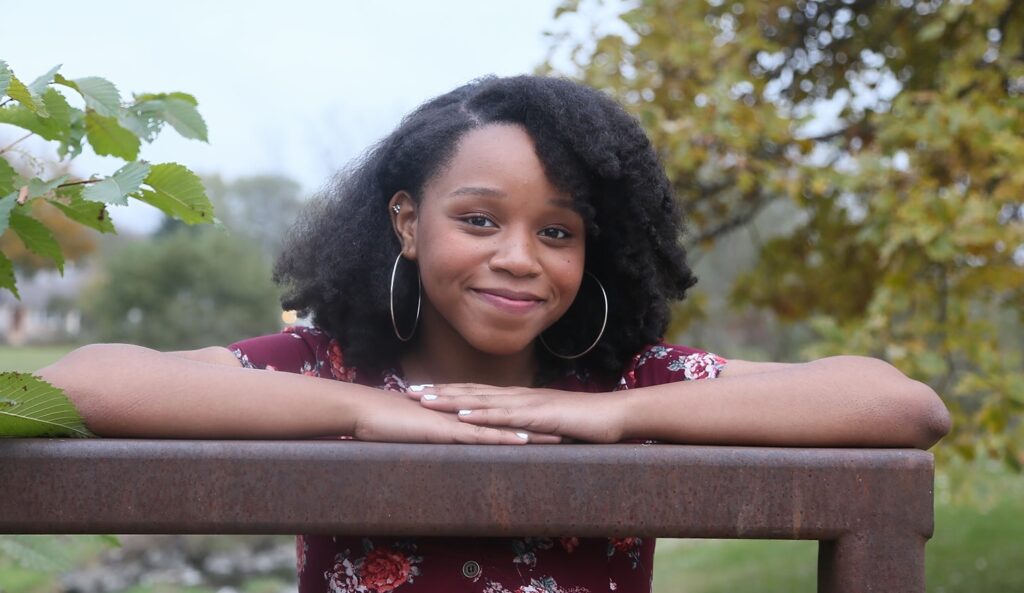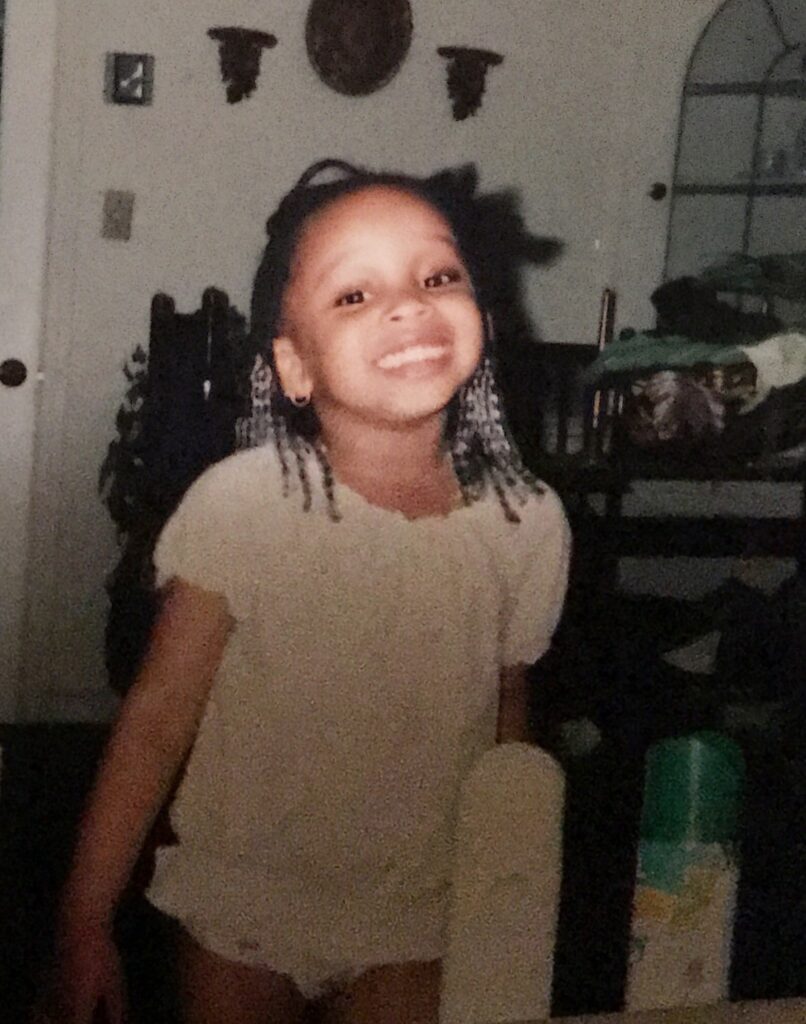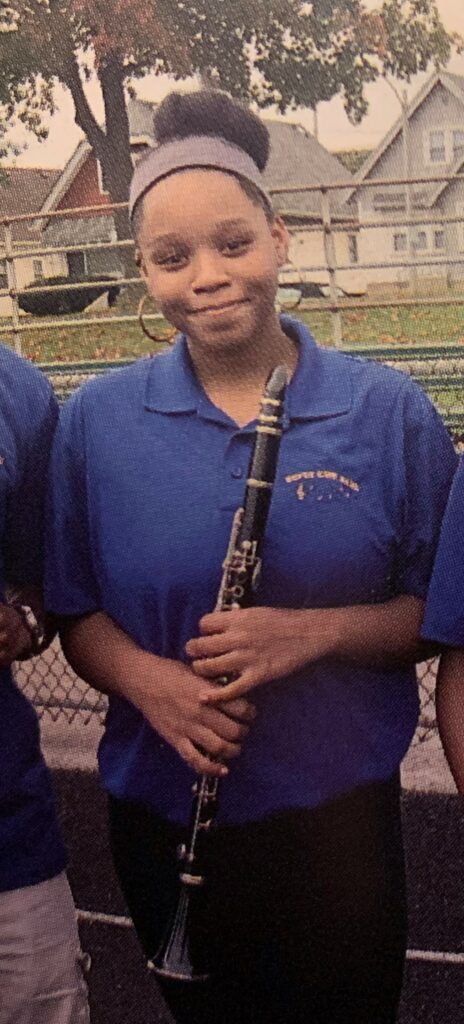
My first ever ‘dream job’ was to be a pit musician. I would sit for hours listening to the Broadway soundtracks of Aladdin and Les Miserables, dreaming of how incredible it would be to perform in these orchestras eight times a week. I must have been about 11 at the time with only two years of elementary school clarinet experience under my belt, but I just knew this job was meant for me. However, as a student of an inner city public school in Milwaukee, Wisconsin, our “music education” consisted of a weekly, hour-long band ensemble lesson with a part-time music teacher. No one around me knew what a pit musician was, let alone how to become one – so my dream was put on hold.
When it came time to seriously begin considering my future career options, music was always in the back of my mind. I assumed my only options in musical theater were to work as either a musician or an actor. While I knew what a conductor was, I couldn’t identify with the only conductor I knew at the time: my high school band director. Throughout my time playing clarinet, I have cycled through a variety of music educators, all of whom were older, white men. Not seeing myself represented in this demographic made me feel like I couldn’t achieve what they had and that there was no space for me in these roles. Additionally, the white, male composers I learned about in school (though talented) felt distant and foreign to me.

This history of overt exclusion of Black and brown creatives, coupled with the stressed instability of the music industry, initially discouraged me from pursuing music professionally. When it came time to apply for college, I decided that, maybe, a career in music just wasn’t for me, and I instead chose to pursue a neuroscience degree with the hopes of working in the mental health field.
Looking back on my childhood, I can’t blame younger me for not knowing what professional roles exist in the musical theater industry and how I might find my place among them. I have since come to understand that the lack of visibility and access to these jobs is one of the many contributing factors that keep women from occupying as many professional roles in music as men. We can’t expect young women and non-binary musicians to feel comfortable pursuing lesser-known jobs in the music industry if the doors are kept closed by those who presently inhabit these spaces.
Thus, the question then becomes: how can we increase the visibility of careers in musical theater for young women and non-binary musicians to encourage the access and inclusivity of these careers?
To get a professional opinion on these ideas, I reached out to two Maestra community leaders.
Music Director Meg Zervoulis and composer-performer Faye Chiao have both worked with the Student Maestras community group, the branch of Maestra geared towards serving high school, college, and graduate music students. These two incredible women also recently served as mentors in the Maestra Mentorship Program, making them perfect to talk to about supporting young musicians.
Below are direct quotations from our conversations:

Nylah Bradshaw (NB): How did you learn about your main profession and what made you want to pursue it?
Meg Zervoulis (MZ): I started accompanying choral and theatre groups at a very young age and immediately fell in love with music directing. Later on, while in high school, I had the opportunity to meet/observe several dynamite MDs and it was those experiences that made me want to pursue this profession formally.
NB: Who were your mentors/inspirations growing up?
MZ: There are too many to mention! Standouts would be my dad (who is a musician), my piano teachers, my high school band and choir teachers, my conducting teacher at Carnegie Mellon (Dr. Robert Page), and my most influential professional mentors: the admins at Paper Mill Playhouse and Mary-Mitchell Campbell.
NB: Why did you choose to be a mentor and what does this role mean to you?
MZ: I believe teaching and mentorship is an integral part of progressing our industry and the arts as a whole.
NB: How do you think our society can further support girls seeking music professions?
MZ: How many hours do we have to discuss this?! A good start would be more nationally funded arts programs, especially in the public schools. Additionally, it is important for young girls to see living examples of women in the industry – representation is everything! Whether this be through career day appearances, pre-made info slides about female musicians for Google Slides/PowerPoint, adopt-a-school programs, or funded masterclasses… the possibilities are endless!

NB: How did you learn about your main profession and what made you want to pursue it?
Faye Chiao (FC): I saw a production of La Boheme and I thought, that’s what I need to do – musical storytelling. So I started writing songs and creating musical stories. It wasn’t until much later that I learned what I was doing was composing. And [there was] a field trip to the opera in grade school. Since that time, I’ve just continually found ways to keep telling stories.
NB: Who were your mentors/inspirations growing up?
FC: All my teachers. And Ella Fitzgerald.
NB: Why did you choose to be a mentor and what does this role mean to you?
FC: In part out of gratitude for the generosity of all my teachers and the opportunities I’ve been granted. In part out of wanting to make things a little easier for the next generation of artists coming up. And in large part, because I’m so inspired by the incredible youth of today. I feel it is important to support them however we can.
NB: How do you think our society can further support girls seeking music professions?
FC: In addition to preparation through quality arts education, seeing a diverse representation of what creators can look like is hugely important for all young musicians. I also think it’s important for young musicians, particularly those from marginalized communities, to have teachers and mentors who can teach the rules of the road and help pave the way. Lastly, I think attention to equitable and inclusive practices in the industry will help make spaces safe and more welcoming for those coming up.
This incredible insight into the importance of mentorship and representation in the industry supports how essential strong teachers are to the development of young musicians’ confidence and skills as they begin their careers. Music educators must not only commit to providing high-quality education in classrooms, but also commit to striving for gender and racial diversity to support young women and non-binary musicians.
A small, measurable step teachers in local school districts can take today is advocating for allowing their students to play music made by racially-diverse women and non-binary composers in addition to the conventional Classical cannon of white male composers. Additionally, they must continue to promote lesser-pursued careers with examples of individuals from diverse backgrounds succeeding in these fields.
As I prepare to enter my third year of my neuroscience degree, I am intentionally allowing extra space in my schedule to explore music-related classes with the intent to pursue musical theater after graduation. I step boldly into this season as I also begin writing my first musical, spurred on by Maestra’s supportive community groups.
Working as an intern for the programming committee has been an incredible re-introduction into the industry and I am grateful to be surrounded by a remarkable group of women who continue to inspire me every day. The resources, access, and support that Maestra provides is exactly the community and model I needed when I was younger.
While there is still quite a long way to go in terms of gender equity and inclusion in this industry of theatre makers and musicians, I am encouraged by Maestra’s continual growth and community support, and I am so thrilled to be a part of this organization.




